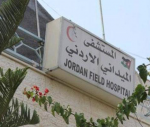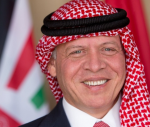You are here
Aqaba records ‘remarkable touristic progress’ — official
By JT - Jul 24,2018 - Last updated at Jul 24,2018

The number of tourists in the first half of 2018 reached 332,477 people (Photo by Amjad Ghsoun)
AMMAN — Aqaba Special Economic Zone Authority (ASEZA) Chief Commissioner Nasser Shraideh said that performance indicators in the tourism sector showed “remarkable progress” in Aqaba, where the number of tourists in the first half of this year rose to 332,477 compared with 306,588 for the same period last year, the Jordan News Agency, Petra, reported.
The hotel occupancy rate in the same period stood at 51.1 per cent, compared with 49 per cent in the previous year, and the average number of nights spent by tourists in the port cty increased from 3.4 to 3.7 nights in the first half of 2018.
In a press conference, Shraideh revealed that discussions on the establishment of Aqaba Airlines have reached their final stages, noting that the airline is expected to start its first flights next October, linking Aqaba with its regional surroundings.
The number of tourist ships that docked the port of Aqaba during the first half of this year reached 30 compared with 22 for the first half of last year, while the number of tourists reaching the city by sea amounted to 39,725 tourists, marking a 35.5 per cent rise since last year.
On the port system, the chief commissioner pointed out that the plan to operate the new port and remove the old one is going “according to plan” and in line with the timetable set in this regard.
He added that the entire docks of the new port will be operational by the end of next August, as 90 per cent of the machinery in the old port has been removed so far.
The old port site’s hand-over to the company Eagle Hills will take place next September, he said, noting that the company will submit the zone’s new investment plan for approval by the Board of Commissioners, with a total cost for the Marsa Zayed project expected to reach up to JD6 billion.
Shraideh stressed that “nothing fundamental has changed” in the special zone’s system of legislation since its establishment, with the exception of some amendments that unified taxes on several commodities, including tobacco and liquor, which aimed to prevent smuggling.
He underscored the link between the special zone’s achievements and performance indicators and its strategic plan, adding that the decision to increase tariffs on these two commodities was made by the government following discussions with the private sector.
Shraideh pointed out that ASEZA has exerted “great efforts” during the past years to combat tax evasion and customs smuggling, confirming that ASEZA was not created to encourage smuggling or evasion, but to be a distinct economic model that generates added value in the national economy.
Related Articles
AMMAN — In 2017, the value of investments in logistics transport and support services in the Aqaba Special Economic Zone Authority (AS
AMMAN — The Aqaba Special Economic Zone Authority (ASEZA) plans to reach 1.5 million annual overnight visitors by 2025, ASEZA Chief Commissi
AMMAN — Chief Commissioner of the Aqaba Special Economic Zone Authority (ASEZA) Nasser Shraideh on Thursday briefed Hungarian President Jáno















